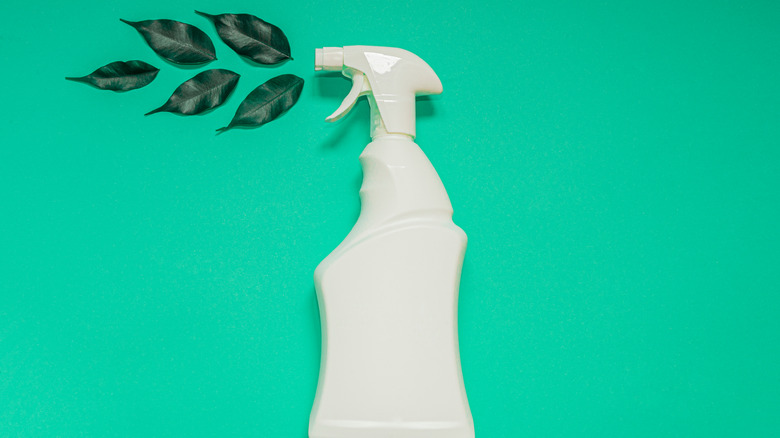Are "Green" Cleaning Products Safe To Use
You've probably noticed a surplus of cleaning products marketed as "green" at your local grocery stores as of recent. As more and more people are looking for cleaning products that are environmentally conscious, toxin and chemical-free, companies are responding to this request by creating "green" alternatives to their popular products. How legitimate are these products' claims, though?
Sadly, though maybe not surprisingly, many of these companies are simply putting the label of "green" on products that are neither organic, eco friendly, nor toxin-free. This phenomenon is called "greenwashing," and according to Investopedia, it is a way of giving a false impression of a product and providing information that is misleading on just how environmentally sound a product is. Companies may claim their products are made of organic, natural materials, implying a false lack of synthetic chemicals. Or, they may advertise that their products are made of recycled materials when they aren't or aren't wholly.
Greenwashing can be as serious as completely falsely advertising the product's green benefits and properties. Most of these green claims are at least somewhat true, though, but advertised in a misleading way.
How to avoid greenwashed products
While greenwashing is horrible for the eco-conscious consumer, it is, for the most part, perfectly legal. According to Matt Kohler for Advap, any random company can add some lemon oil to a bunch of chemicals and call it environmentally friendly. This is because cleaning product manufacturers aren't required to list their ingredients on their labels. With increased consumer demand for green products, companies know they can simply stick a eucalyptus leaf on their basic products and upcharge as a "green" alternative. Eco Watch said it works quite effectively, with two-thirds of shoppers willing to pay more for green products.
Business News Daily had a few suggestions for avoiding greenwashed products, including watching for obviously harmful products (cigarettes, trash bags, etc.) being marketed as green, trendy yet unsubstantiated language and buzzwords (such as "eco friendly"), companies known for causing grand-scale environmental destruction marketing green products, or greenwashing images. To totally avoid greenwashed products, do research on the company producing the product — do they have a history of greenwashing, environmental harm, etc.? Next, look at the product itself. If the product is truly green, there will be transparency between the producer and consumer about the product's contents and carbon footprint. If there is a lack of transparency, the product is more than likely greenwashed.

